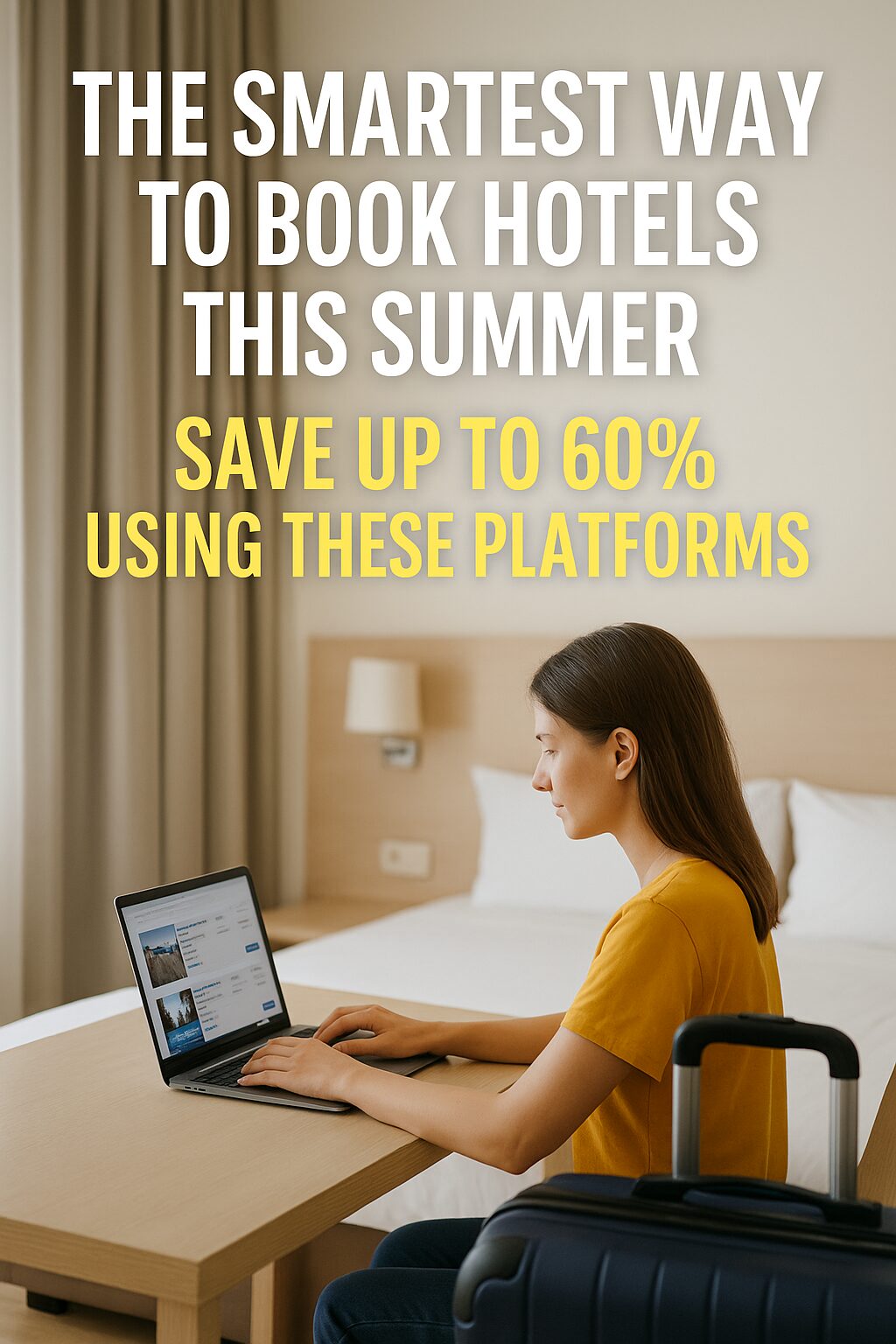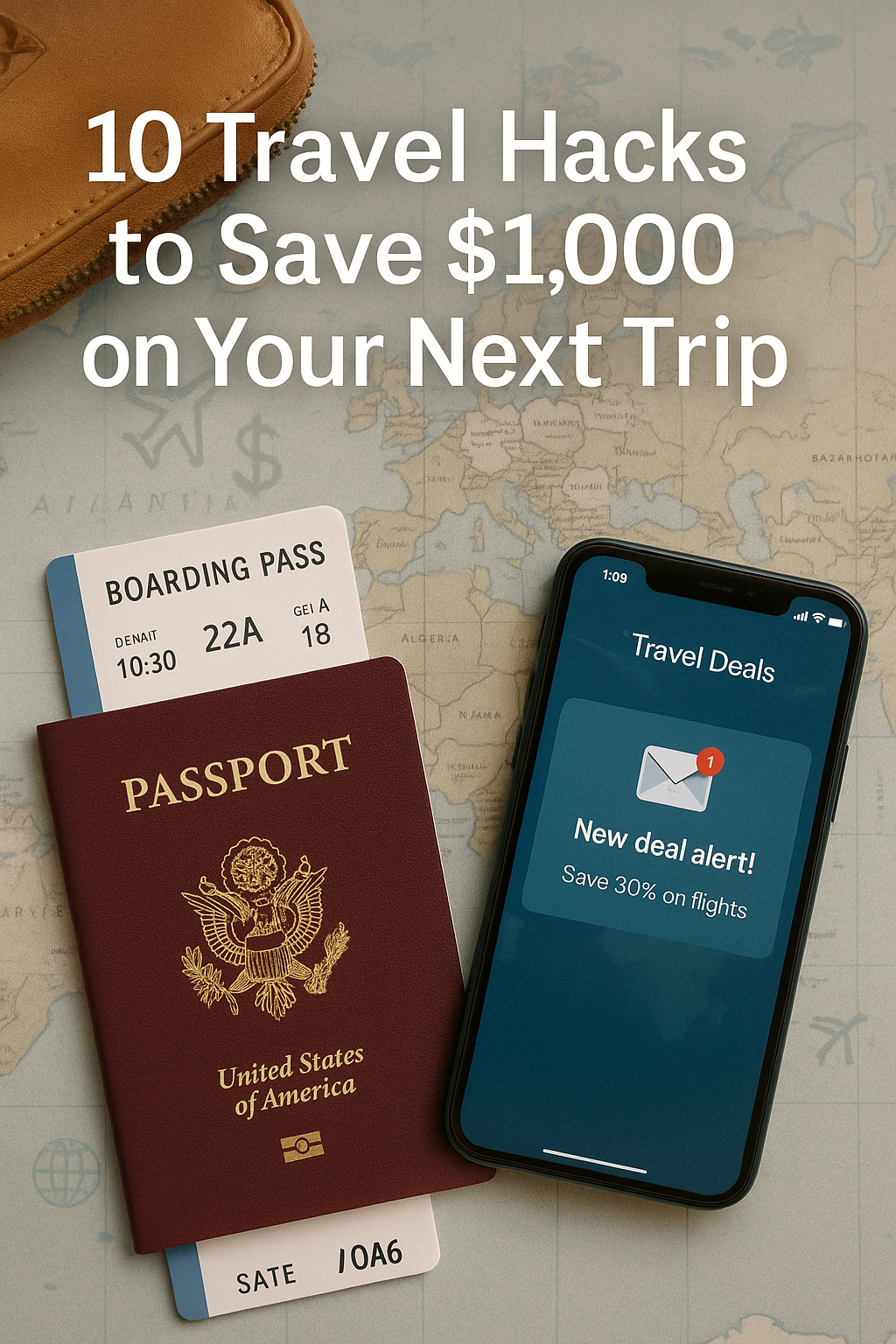Why Hotels Are the Most Overpriced Part of Travel
Flights get all the attention, but hotels often eat up the biggest chunk of your travel budget—especially during summer. The same room can cost $100 more depending on when, where, and how you book.
This guide will show you exactly how to save up to 60% on accommodations using smart platforms, hidden-rate tactics, and booking psychology. Whether you’re traveling for work, leisure, or with family, this evergreen strategy works globally, year-round.
1. Use Price Comparison Platforms – But Not Just One
Most travelers check one or two sites (like Booking.com or Expedia) and stop there.
Big mistake. Every site shows different rates and hidden deals.
Best platforms to compare:
- HotelsCombined – searches over 30+ platforms at once
- Trivago – great for fast comparisons
- Kayak – includes taxes and fees up front
- Agoda – often has Asia-specific discounts
Tip: Always double-check final price with taxes before booking.
2. Always Check the Hotel’s Official Website
Many hotels offer lower prices or extras (like free breakfast or upgrades) only on their official site.
Also, you can sometimes negotiate directly for better deals if you call or email.
Smart strategy:
- Use comparison sites to find the best rate
- Then visit the hotel’s own site to check for promos
- Finally, call and ask: “Can you match or beat this rate?”
3. Use ‘Hidden Rates’ and Private Deal Portals
Some platforms hide the best prices behind logins or apps.
Where to find them:
- Hotwire Hot Rates
- Priceline Express Deals
- Orbitz Members-Only Deals
- App-only offers on Booking, Agoda, etc.
These are often 20–50% cheaper, but you won’t see the hotel name until after booking.
Perfect for budget travelers willing to trade transparency for price.
4. Try Meta-Search Tools and Travel Agents (Yes, Still Useful)
Google Hotels and Trip.com sometimes surface rates even the hotel won’t advertise.
Also, travel agents in your home country might have access to local deals for popular summer destinations.
✅ This is especially useful if:
- You’re booking for groups or long stays
- You want bundled rates with flights + hotels
- You’re traveling to high-demand areas
5. Use a VPN or Country-Switching Trick
Just like with flights, hotel prices change depending on where you’re browsing from.
How to hack it:
- Use a VPN to pretend you’re in a low-cost country (e.g., India, Malaysia)
- Switch the currency on hotel sites manually
- Compare USD price vs local currency
Sometimes, you’ll save 10–30% just by “traveling digitally.”
6. Book at the Right Time – Not Too Early, Not Too Late
Booking too far in advance can mean inflated rates.
But last-minute booking during peak season can be risky.
Best booking windows:
- 2–3 weeks before check-in = best for price
- Monday to Wednesday = cheaper rates
- Avoid booking Friday or Saturday (when demand surges)
Bonus: Use Hopper or Google Hotels to monitor price changes.
7. Use Cashback and Reward Sites (It Adds Up!)
Before finalizing your booking, go through cashback sites like:
- Rakuten (US/CA)
- TopCashback (UK/US)
- RebatesMe (global)
You’ll get 5–15% back on hotel bookings—money you can use on the trip!
Pro Tip: Combine this with a travel credit card to double dip rewards.
8. Avoid the ‘Default Sort’ Trap
Most hotel platforms sort by “Recommended” or “Popular” first.
This often hides the best-value properties.
What to do instead:
- Sort by Price + Guest Rating
- Use filters: 3-star & up, rating 8.0+
- Expand your search area radius (5–10 km)
This single step can reveal better rooms for half the price.
9. Consider Alternative Accommodations (Not Just Hotels)
Hotels aren’t your only option.
Budget-friendly alternatives:
- Guesthouses: often locally run, more charm
- Serviced apartments: ideal for longer stays
- Hostels: private rooms with shared facilities
- Airbnb or Vrbo: especially good for groups
Choose what fits your purpose, not just the platform you’re used to.
Final Thoughts: Booking Smart = Traveling More
Hotels can easily double your travel budget—but they don’t have to.
With the right combination of tools, timing, and strategy, you can stay in comfort without financial regret.
And when your lodging costs go down, your travel frequency can go up.

